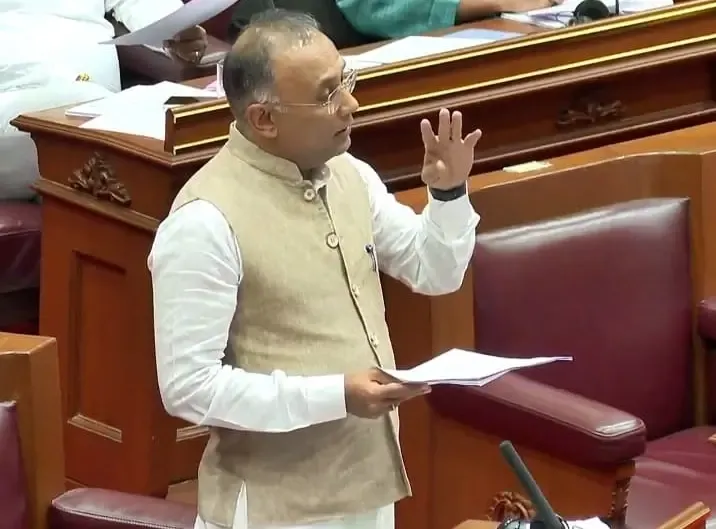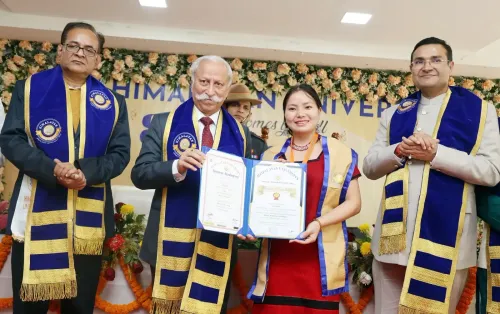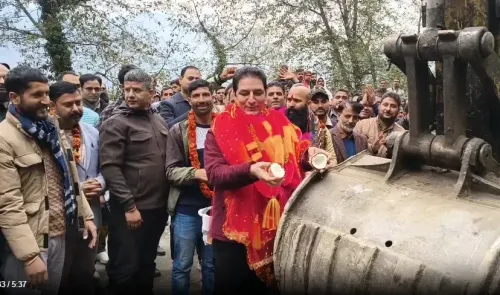Maternal Mortality: Karnataka Health Minister Urges National Regulation of Pharmaceutical Industry

Belagavi, Dec 17 (NationPress) Karnataka Health Minister Dinesh Gundu Rao has called for greater oversight of the influential pharmaceutical sector in the nation, stating that this issue must be addressed through national legislation.
“I want to stress that the laws governing drugs are inadequate. There has been no precedent for actions taken against pharmaceutical companies,” the minister remarked in the Legislative Council while discussing the series of maternal fatalities at the Ballari hospital.
He pointed out that numerous medications have failed due to subpar quality, but holding pharmaceutical firms accountable has been a challenge.
“This matter requires earnest discussion at the national level. If quality medications are not produced, it will have dire consequences for the populace,” Rao asserted.
Substandard medications can lead to fatalities and ineffective treatments for illnesses. Most drug manufacturing companies are situated in states like Himachal Pradesh and Uttarakhand. They receive backing from the government, and in an effort to safeguard their reputation, pharmaceutical companies are often granted immunity, Rao alleged.
He further claimed that pharmaceutical companies are shielded from regulatory frameworks and protected by the judiciary. “Some drug manufacturers maintain one standard for medications exported abroad and a different, inferior standard for those distributed within India,” Rao highlighted.
“There should be no disparity in drug quality, regardless of whether they are intended for export or for the underserved in India. Quality must not be compromised. The current system fails to guarantee this,” the Minister emphasized.
He mentioned that the Drug Control Department sent a correspondence regarding drug quality certification, but the state laboratory reported differently.
“We cannot contest the findings of accredited national laboratories and must accept their assessments. The batch of medications was tested five times prior to being supplied to the Ballari hospital,” he stated.
He also noted that all laboratories confirmed the medication as compliant. However, concerns have been raised regarding the management and operations of nationally accredited labs.
“A team has been set up to probe this matter, and a report is pending,” he added.
Minister Rao insisted that there should be no attempts to cover up such incidents.
“This is a systemic failure. Similar occurrences have been reported across the nation. Initial measures are taken, but the matter is later overlooked. This should not be the case. It needs to be addressed at the national level, and systemic flaws must be rectified in light of this tragedy,” he urged.
He stated that following visits from teams representing the state government, the Drug Control of India, and the West Bengal government to the implicated pharmaceutical firm, concerns were raised about the manufacturing processes.
“A stop-production order has been issued to the company, ceasing all drug production activities,” Rao informed.
“The manufacturer should not be allowed to commit such errors. The Food Control Department and the Drug Control Department will now be overseen by an IAS officer in the state,” he stated.
“We must not tolerate such incidents in any form. This reflects the current condition of the system in our nation. In Maharashtra, a company provided antibiotics containing counterfeit powder,” he reiterated.
“The pharmaceutical lobby in our nation is extensive and possesses significant influence at the central government level. Regulatory laws are not effectively enforced. Our country requires a system that ensures the production of only quality medications. We should aim toward this objective,” Rao asserted.
“The Development Commissioner has been tasked with providing a comprehensive report on the maternal death tragedy. Strict directives have been issued to investigate each maternal death case in the state, and a maternal death audit is underway,” he announced.
Regarding the maternal fatalities, Rao elaborated, “The incidents at the Ballari District Hospital took place on November 9, 10, and 11. A total of 34 cesarean sections were performed, of which seven cases became critical. Tragically, five women died post-delivery, while two recovered and were discharged.”
The government became aware of the situation on November 13, leading to the immediate dispatch of a team for investigation. Rao noted that over 2,000 deliveries had been conducted at the Ballari hospital previously, with no reported fatalities.
An expert medical team visited the hospital on November 14 and submitted a report two days later. The report indicated that local doctors had not displayed negligence or failings in duty and that all procedures and protocols were adhered to.
Minister Rao stressed that such incidents should not be tolerated.
“We must reflect on the repercussions of a mother’s death in a family due to a manufacturer’s negligence or any other reason,” he pointed out.
“We are taking measures against laboratories for providing false reports. Pharmaceutical companies must not deliver substandard medications. The system must ensure this and prevent companies from endangering lives. Another drug from the same manufacturer has also failed quality tests,” he revealed.
“All necessary actions must be taken against the Paschim Banga Pharmaceuticals company, which supplied substandard medications. We remain unaware of how many other companies operate similarly. The issue surfaced only due to the series of deaths in Ballari. If fatalities occur in various locations, they may go unnoticed due to ineffective reporting mechanisms,” Minister Rao concluded.










